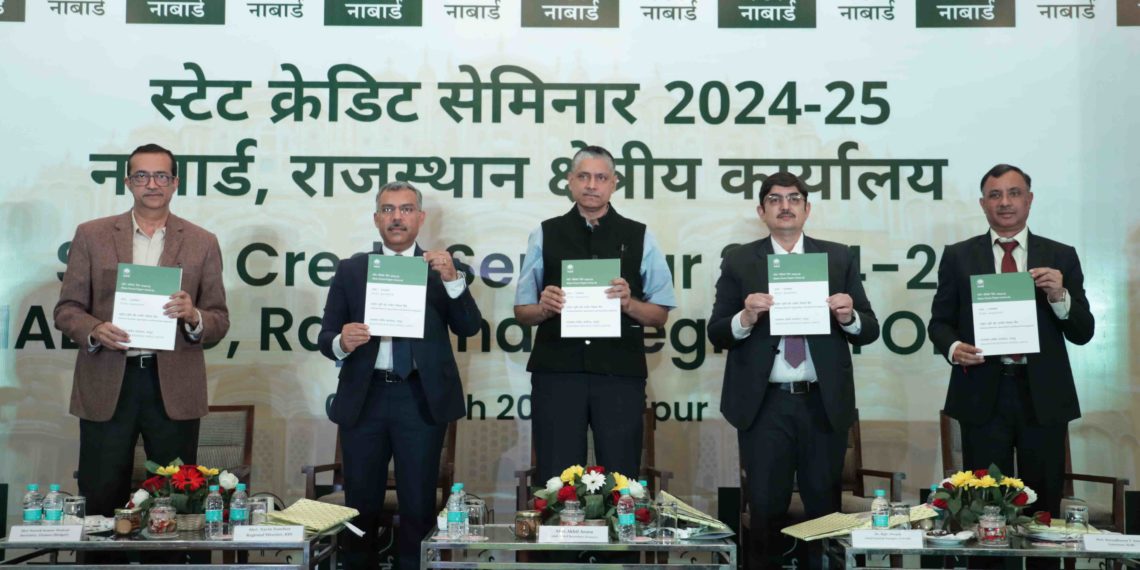In the latter half of the 2024-25 fiscal year, the National Bank for Agriculture and Rural Development (NABARD) is taking significant strides to address the infrastructure gaps hindering the flow of agricultural credit in the country. With a robust agricultural credit target of Rs 22.5 trillion set for the period, NABARD is gearing up to issue social bonds, aiming to enhance rural financial health and infrastructure, reports BNN.
NABARD’s multifaceted approach encompasses various initiatives aimed at bolstering rural economies. These include providing financial support for rural infrastructure projects, strengthening rural financial institutions, promoting financial literacy among rural populations, and fostering entrepreneurship in rural areas.
One of the key highlights of NABARD’s efforts is the unveiling of priority sector credit potentials in states like Rajasthan and Tamil Nadu. In Rajasthan, NABARD revealed a staggering credit potential of Rs 3.62 Lakh crore for the fiscal year 2024-25, marking a notable 32 percent increase from the previous year’s assessment. This announcement took place during NABARD’s State Credit Seminar, where the institution launched the State Focus Paper (SFP) for the fiscal year, outlining district-wise potentials across Rajasthan.
Similarly, in Tamil Nadu, NABARD unveiled its State Focus Paper for 2024-25 during a State Credit Seminar. The paper projected a credit potential of Rs 8,34,078 crore for Priority Sector activities, representing a substantial 69% increase from the previous year’s projections. This allocation includes funds for agriculture, MSMEs, and other priority sectors crucial for economic development.
Dr. Rajiv Siwach, Chief General Manager of NABARD, provided insights into the credit potentials, indicating that a significant portion is earmarked for agriculture and allied activities, as well as the MSME sector. Stakeholder feedback during the seminars played a crucial role in shaping policies and programs to address grassroots-level credit demands and enhance productivity across various sectors.
The seminars also emphasized collaborative efforts between the government and the banking sector to advance development agendas. Notable dignitaries, including state officials and representatives from financial institutions, attended the events, underlining the importance of partnerships in achieving developmental goals.
Looking ahead, NABARD’s strategy focuses on exceeding agricultural credit demands while ensuring sustainable growth and financial inclusion in rural communities. By leveraging innovative financial tools like social bonds, NABARD aims to foster a more resilient and equitable agricultural finance landscape, addressing challenges effectively. As the sector moves forward into the 2024-25 financial year, the emphasis remains on empowering rural communities and driving economic stability and productivity across the country.















































